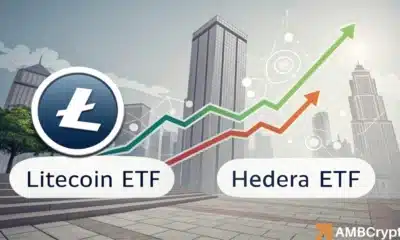India, Nigeria, Vietnam lead grassroots crypto adoption: Report

- The index assessed more than 150 nations to determine grassroots cryptocurrency adoption.
- The Central and Southern Asia and Oceania (CSAO) region dominated the top of the 2023 index.
India topped the Chainalysis’ 2023 Global Crypto Adoption Index, with Nigeria and Vietnam securing the second and third positions, respectively.
Chainalysis released an excerpt from the 2023 Geography of Cryptocurrency Report on 12 September. The index assessed more than 150 nations based on a variety of parameters to determine grassroots cryptocurrency adoption.
The New York-based blockchain analytics firm is going to release the complete report in October.
India also surpassed other major economies to become the world’s second-largest crypto market by raw estimated transaction volume. Notably, the report shed light on the country’s 1% tax deducted at source (TDS) applied to crypto transactions, and the 30% tax on gains made by crypto trading.
When Chainalysis released the index in 2022, it ranked India, Vietnam, and Nigeria at fourth, first, and eleventh positions, respectively. As is evident, this is an upset for Vietnam.
Asian, LMI countries dominate the index
The Central and Southern Asia and Oceania (CSAO) region dominated the top of the 2023 index, with six of the top 10 countries in this part of the world. The U.S. ranked fourth, while Ukraine stood at the fifth position.
The latest index suggested that lower middle-income (LMI) countries were leading the way in the grassroots crypto adoption.
All was not lost for high-income countries, however, as institutional adoption seemed to be picking up momentum despite a prolonged bear market.
India makes strides in crypto adoption
India recently hosted the G20 summit that concluded last week. During the summit, the International Monetary Fund (IMF) and the Financial Stability Board (FSB) recommended a comprehensive and standard framework for crypto.
They outright rejected a blanket ban as the way to deal with crypto-related risks.
The South Asian country has, time and again, emphasized the need for a global consensus on formulating crypto policies. Finance Minister Nirmala Sitharaman remarked during an event in April,
“No one country individually, in a matter of technology-driven, crypto assets, can effectively control it, because technology doesn’t have any borders, it can just pass through. So the very character of it being technology driven requires all countries to be on board, or else it will not be effective.”







